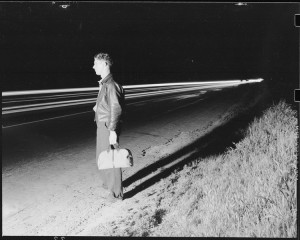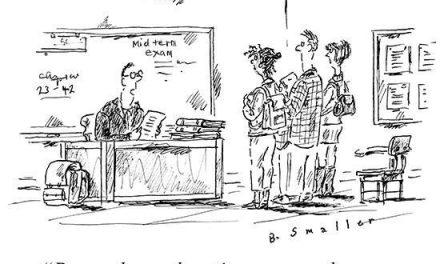 My husband and I moved to Austin, TX a half a year ago for him to complete a one-year residency as a hospital chaplain. We are a one-car family, and his work requires use of the car almost everyday. Both to shorten his commute and to give me and the kids access to the bus lines, we live in the city limits, in a relatively low-income part of town, rather than further away in the suburbs. The kids and I get around either by bike (we have a double trailor), or during the winter, more frequently by bus.
My husband and I moved to Austin, TX a half a year ago for him to complete a one-year residency as a hospital chaplain. We are a one-car family, and his work requires use of the car almost everyday. Both to shorten his commute and to give me and the kids access to the bus lines, we live in the city limits, in a relatively low-income part of town, rather than further away in the suburbs. The kids and I get around either by bike (we have a double trailor), or during the winter, more frequently by bus.
I get a lot of attention when I ride the bus. Just yesterday, after I struggled up with the stroller behind my three year old, with my son strapped to me in the Ergo, a man in the front struck up a rather odd conversation:
Man: What are you doing in the neighborhood?
Me: I live here.
Man: You live here? So . . . are you a single mom, then?
Bus drivers frequently waive my bus fare. “Oh,” they say as I fumble for change. “You don’t need to pay.” Once, a bus driver said outright, “I never see people like you riding the bus.” I assume he meant that I was white, and by the conversation I was having with my daughter, relatively well-educated. And he is right. I don’t meet a lot of people like me riding the bus. And this is a shame.
Being “carless” has been an invaluable experience for both me and my kids. I want to briefly outline three moral implications of not having a car and end with a reflection on what being carless is teaching me about social justice.
1. Being carless is better for the environment: In the northeast, it is, in my experience, pretty common to use public transportation, but not so much in the south where things are more spread out and suburban living is more affordable. In the south, if you live in the suburbs, you need to have a car to get anywhere. Often, you need to drive at least a mile before even getting out of a subdivision. Shopping usually requires driving between one store and the next even when the stores are close together. In my in-laws’ part of Texas, it is not uncommon to drive across a parking lot to get to a different store due to the sheer size of the shopping centers which can easily be half a mile long. Busses reduce the need to drive so much and reduce our overall carbon footprint. Bikes are even better because they allow you to get some exercise in without the carbon emissions.
2. Being carless means we don’t do that much: We really don’t. While busses and bikes reduce our carbon footprint for sure, they do not make us more efficient with our time. Though we live a short 15 or 20 minute drive (without traffic) from the city center, it takes an hour and 15 minutes to go the same distance by bus. Frequently, our destinations require bus transfers and even going to church 3 miles away takes half an hour. This means that many of the activities that I would do with the kids if I had a car (like playdates or classes) are simply not reasonable. Nine out of the ten invitations I get to do something with the kids we have to turn down. Which means we stay home a lot more. Our calendar is surprisingly empty.
This has been a hard adjustment for me since I have always been a “do-er.” And honestly, I feel guilty almost everyday that we aren’t doing more. But I am learning the virtue in a quieter life. Our pace of life makes me think of the following quote from Pope Benedict XVI:
Any kind of hectic activity, even in religious affairs, is utterly alien to the New Testament picture of man. We always overestimate ourselves when we imagine we are completely indispensable and that the world or the Church depends on our frantic activity. Often it will be an act of real humility and creaturely honesty to stop what we are doing, to acknowledge our limits, to take time to draw breath and rest—as the creature, man, is designed to do. I am not suggesting that sloth is a good thing, but I do want to suggest that we revise our catalog of virtue, as it has developed in the Western world, where activity alone is regarded as valid and where the attitudes of beholding, wonder, recollection and quiet are of no account, or at least are felt to need some justification. This causes the atrophy of certain essential human faculties” (Co-Workers of the Truth)
And in spite of my guilt, I can see how this quiet pace of life has been good for my kids. We have a lot of time for prayer. It is not uncommon for me to get to do morning prayer, the rosary, the Angelus, and a few Bible stories with the kids. They have become experts at entertaining themselves through creative play, and they very rarely look to me to entertain them. They spend a lot of time outside and are very familiar with the going ons of the outdoors. A few minutes ago, as I was typing, my daughter looked out the window and observed, “Look, Mom! A flock of golden-capped kinglets in the elm tree outside!” Yesterday, she was watching two blue jays play in the back yard and she asked if we could “Look in the bird book to see if males and females looked differently” because she hoped that the two identical birds in the back yard were “a mommy and a daddy getting ready to build a nest.”
In addition, free time for me has allowed me to say yes to a lot of things that I wouldn’t be able to if we were out more in a car. When the neighbor needs to run to the store, I can watch her kids. When a friend down the street goes into labor, I can watch her daughter. We get to eat lunch and dinner with neighbors frequently. Saying “no” to driving means a lot more “yesses” to neighborliness.
3. Being carless is teaching us how to be in solidarity with our neighborhood: I mentioned above that we live in a low-income part of town, which is what we can afford in the higher-priced real estate of the city. Because we don’t have a car, we spend a lot of time playing in our neighborhood. My kids are learning Spanish because where we live, that is what everybody speaks. When we go to the playground, we go to our neighborhood playground which is old and not very well-maintained. We have learned how to get the Parks Department to pay attention to our neglected park and to become advocates for our playground. We have seen four people arrested at this playground in half a year. We are often the only white people. We are regularly exposed to mentally-ill people. This is especially the case in my neighborhood bus lines. Like I said above, we don’t really see people like us on the bus. We always get a lot of attention.
To be honest, I am often uncomfortable, but I am becoming less so. Moreover, I have been delighted watching my daughter respond. Yesterday, she carried on a very polite conversation with a mentally-ill man on the bus (without excessive staring). She knows that so many kids her age live really difficult lives. She knows she is privileged. And while she feels safe where we live, she knows that the world isn’t necessarily a safe place. A few days ago she was listening as a neighbor told us about a friend who was deported back to Mexico and whose 13-year old daughter was kidnapped and held for ransom. At first, I was worried when I saw her listening attentively, but later we had a wonderful conversation about how important it is for so many of the immigrant families we live around to be in this country because they have had to flee such unsafe conditions in their home countries. She is young and she doesn’t fully understand, but she is beginning to. And I am beginning to see her develop an experiential knowledge about human dignity, human rights, and solidarity with the poor.
And I am learning important lessons about solidarity. I often think of this quote from Sollicitudo rei socialis:
[Solidarity] is not a feeling of vague compassion or shallow distress at the misfortunes of so many people, both near and far. On the contrary, it is a firm and persevering determination to commit oneself to the common good; that is to say, to the good of all and of each individual, because we are all really responsible for all.
It strikes me that a car is so often an instrument that leads us away from solidarity by isolating us from our brothers and sisters. When I drive around town, it is easy to roll up the window and not make eye contact with the beggars at the stoplights. But when I am out on the bike or walking or waiting at a bus stop right next to them, I can’t help but notice. They talk to me. I am forced to talk to them, look at them, acknowledge their humanity. When I have the car, I go on playdates and meet up with other moms who are usually just like me (middle class sentiments, educated, white). But without the car, I am forced to form relationships with people that I otherwise wouldn’t. And I am better for it.
As a virtue ethicist, I was trained to recognize the little, mundane ways in which our character is formed. If we think of the principles of social justice (respect for human dignity, solidarity, preferential option for the poor, etc.) as habits, we can see how important seemingly little things are in building up a just society. This is encouraging because as a mother of small children, I often feel discouraged that there aren’t more things that I can do to work for a just society. But being carless is teaching me a “little way” of social justice, but one I think that will have a big impact, both on me and hopefully my kids.





What a lovely post. I work in an inner city church with the poor and the mentally ill as well as the addicted folks around all of the time. My children are grown with households and families of their own now but when they were young they came to work with me in the summer or when they were out of school during the week. They played with the children of the neighborhood and they talked with “the folks” who came to be served at our parish mission. They were not afraid of the people from the street who joined us at mass on Sundays.
My children, all six of them, have grown up to be compassionate and inclusive. Indeed, social justice really begins with the “little way”.
Thank you Elena for your own story of raising kids with the little way of social justice. As a parent, we often have a desire to keep our kids safe so we flee when the neighborhood gets rough. I am sensitive to this desire (who doesn’t want their kids to be safe?) but I am also realizing that my middle-class sentiments grossly misestimate what is “safe,” tending instead to conflate “safety” and “comfort.” I am often uncomfortable with the people I talk to on the bus, but I am finding that both me and my kids are really very, very safe. “Those people” who I often thought of as dangerous I am beginning to see as just other people. And I think my kids are learning the same thing.